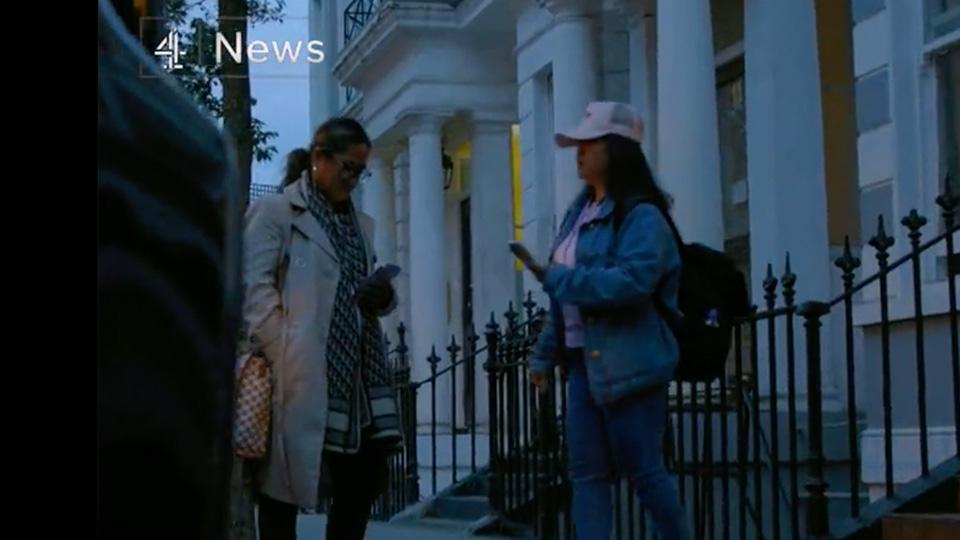Goldsmiths academics bring the reality of modern slavery to TV News
Primary page content
The moment when two women escaped from modern slavery, in a dramatic report on Channel 4 News, came about by deep research and relationship-building between Goldsmiths academics and the Voice of Domestic Workers network group.

Voice of Domestic Workers group preparing to rescue two women Image Credit: Channel 4 News
An exclusive report on Channel 4 News programme on Friday 25 August 2023 revealed the escape to freedom of two Filipino women, who were victims of modern slavery in London, thanks to the Voice of Domestic Workers (VODW) group.
Tassia Kobylinska, Lecturer in Television and Sue Clayton, Professor of Film at Goldsmiths supported the breakthrough news segment, broadcast on the prime-time evening news slot.
Through grounded research, patiently gathering first-hand accounts and building trusted relationships with the networks involved, Tassia and Sue worked together with the rescue group who are bringing the reality of modern slavery to light along with sharing the critical work being done by the VODW.
“Tassia's amazing access to the women's story and her embedded filming technique, along with the crucial role of VODW, made this happen. It's been a real honour to work on this story with Tassia.” Sue Clayton said.
Professor Sue Clayton is no stranger to the deep research needed to bring these experiences into media life. As a contributor and consultant producer with Channel 4 News for over 8 years she has done the same to put flesh to individuals whose lives are caught up in the European refugee crisis.
“It’s grounded research, getting first-hand accounts from those battling for fundamental rights like citizenship, and a safe country where they can live and work that many news agencies either can’t or won’t do,” she said, “but it's vital that these get out to a wider public.
Both the conventions and methods of news gathering mean that news stories of this kind are rare, Clayton believes. But among the rare examples where they reported, subjects are turned into vulnerable and precarious victims
“These women are very much not victims, but are well able to articulate, analyse and take actions not only to support each other but to engage with power and seek change. It would be a big breakthrough if more news coverage took this on board, not just giving a 'voice' to groups to express their 'problem’ but accepting that these same people might have an analysis of their own, that challenges the viewer to think again.”
“I saw this as a lesson in how to balance activist values within mainstream media conventions. This is something that Media students must all learn too, so I'm looking forward to passing some insights back in teaching!”
Tassia Kobylinska said: "Each of these women in the rescue group have been through the same experiences and escaped from similar situations. Their work is so powerful because they bring the women they help escape into a collective of 100s of other migrant domestic workers, who organise politically - as workers and for workers' rights and dignity. They provide advice, skills training, therapy and deep friendships. They transform trauma into powerful action, what we show here is just the beginning."
Dame Sara Joanne Thornton, the UK Independent Anti-Slavery Commissioner from 2019-2022, was interviewed from the studio as part of the report.
The full report is available to watch on the Channel 4 News YouTube channel.